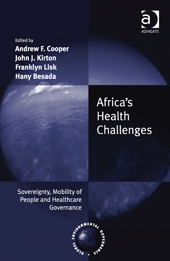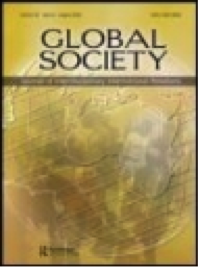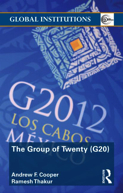The constant theme in my work concerns questions about change and continuity in diplomatic practice, the shifting role of big, middle, and small countries, the contours of global summitry with a particular focus on the G20 and the BRICS, and the foreign policy of select countries including Canada. I have written 6 single-authored books, three other co-authored works, and edited/co-edited over twenty collections. While the core of my research is on major themes in the mainstream of International Relations, notably the shifting global order with a particular focus on institutional dynamics, I take pride in my innovative writings in areas ranging from niche selection among middle powers, the dynamics of mixed coalitions in IPE, the unique approach in democracy promotion in the Americas, vulnerability and resilience among weaker states, the ascendancy of institutional informality, and the enhanced role of unconventional actors in diplomatic practice most notably celebrity activists.
My scholarly publications have appeared in International Organization, Global Governance, International Affairs, World Development, International Studies Review, Third World Quarterly, International Interactions, Political Science Quarterly, Global Policy Journal, Washington Quarterly, Journal of Democracy, Global Society, and New Political Economy.
New Publications
No longer content to fade away into comfortable retirement, a growing number of former political leaders have pursued diplomatic afterlives. From Nelson Mandela to Jimmy Carter, and Bill Clinton, to Tony Blair and Mikhail Gorbachev, this set of highly-empowered individuals increasingly try to make a difference on the global stage by capitalizing on their freelance celebrity status while at the same time building on their embedded club attributes and connections.
In this fascinating book, Andrew F. Cooper provides the first in-depth study of the motivations, methods, and contributions made by these former leaders as they take on new responsibilities beyond service to their national states. While this growing trend may be open to accusations of mixing public goods with private material gain, or personal quests to rehabilitate political image, it must he argues be taken seriously as a compelling indication of the political climate, in which powerful individuals can operate outside of established state structures. As Cooper ably shows, there are benefits to be reaped from this new normative entrepreneurism, but its range and impact nonetheless raise legitimate concerns about the privileging of unaccountable authority.
Mixing big picture context and illustrative snapshots, Diplomatic Afterlives offers an illuminating analysis of the influence and the pitfalls of this highly visible but under-scrutinized phenomenon in world politics.
Table of Contents
1. Hyper-Empowered Individuals on the Global Stage
2. The Prototypical Model
3. A Contested Reinvention
4. Salvaging or Savaging Reputations?
5. Leveraging Iconic Status
6. Building Network Power
7. Former Leaders and the Diffusion of Agency
Article in Global Governance
Andrew F. Cooper and Bessma Momani (2014) Re-balancing the G-20 from Efficiency to Legitimacy: The 3G Coalition and the Practice of Global Governance. Global Governance: A Review of Multilateralism and International Organizations: April-June 2014, Vol. 20, No. 2, pp. 213-232.
This article contributes to the literature on global governance, legitimacy, and small states through a detailed analysis of the Global Governance Group. It examines in particular the operational impact and wider conceptual implications of the 3G’s collective diplomatic efforts on the Group of 20. By engaging in a reconfigured form of informal multilateralism, the article finds that the 3G has been and is capable of shaping the global agenda with respect to the G-20 in a way that is both more inclusive and connected with existing institutions, especially the United Nations. Through this initiative, this group has effectively recalibrated the existing narrative about small states, the G-20, and global governance—shifting it from the paradigm of efficiency to one of legitimacy.

Africa’s Health Challenges: Sovereignty, Mobility of People and Healthcare Governance
Andrew Cooper is the co-editor of Africa’s Health Challenges: Sovereignty, Mobility of People and Healthcare Governance (Ashgate: 2013). He has also been named to the advisory of a UK Economic and Social Research Council – Department for International Development (ESRC/DFID) project, Poverty Reduction and Regional Integration: A Comparative Analysis of SADC and UNASUR health policies
Oxford Handbook of Modern Diplomacy
The Oxford Handbook of Modern Diplomacy is an authoritative reference tool for those studying and practicing modern diplomacy. It provides an up-to-date compendium of the latest developments in the field. Written by practitioners and scholars, the Handbook describes the elements of constancy and continuity and the changes that are affecting diplomacy. The Handbook goes further and gives insight to where the profession is headed in the future. Co-edited by three distinguished academics and former practitioners, the Handbook provides comprehensive analysis and description of the state of diplomacy in the 21st Century and is an essential resource for diplomats, practitioners and academics. Read more about The Oxford Handbook of Modern Diplomacy.

Article in Global Society
The central question that this work asks is whether the relationship between the Group of Twenty (G20) summit process and civil society is path dependent on the template built up with respect to the Group of Eight (G8). Or, alternatively, does the G20–civil society relationship move towards a distinct autonomous pattern? Through the perspective of the G8 template it is the differences as much as the basic similarities that stand out with respect to the G20. Civil society recognised the significance of the G20 as a site both of delivery and resistance far quicker than they did with the G8—although the process of engagement did not take place as quickly as might have been expected given the scale of the impact of the global financial crisis. In terms of scope, there has not developed the sense of connection with the G20 agenda as occurred previously with the G8. In terms of form, there remains a more nuanced approach to the relationship between civil society and G20 than the two ends of the “Genoa” and “Gleneagles” spectrum established with the G8.
The Group of Twenty
Providing a comprehensive historical account of the G20 Finance Ministers and Central Bank Governors process, the text then moves on to outline the conditions, events and debates that led to the formation of the permanent, expanded leaders’ level forum. The historical span of the G20 Summit process is not long, but the global transformations that precipitated it are crucial when seeking to understand it.
- Governance by self-selected groups versus mandated multilateral organizations
- the legitimacy of informal leadership
- the issue of the G20’s composition of both ‘solution’ countries and ‘problem’ countries
- the role of the emerging powers
- new conceptions of North-South relationships
This work offers a detailed examination of the ongoing shifts in economic power and the momentum toward global institutional reform, illustrating how the G20 has moved from a crisis committee to the premier global forum over this short but intense history, and mapping out its comparative advantages and key challenges ahead. More about The Group of Twenty.



